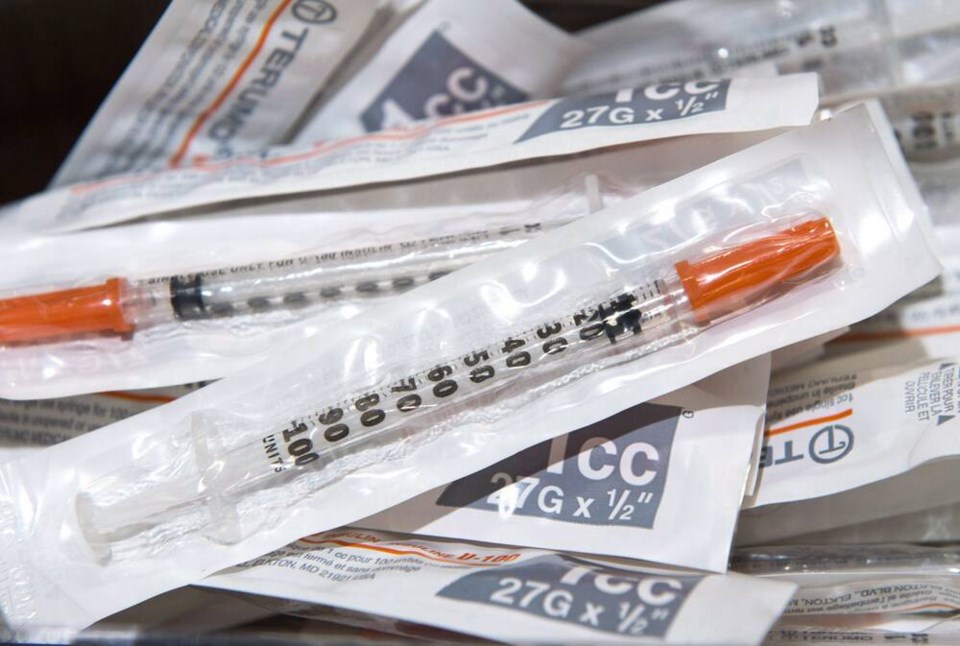A commentary by a mother who lost a son due to fentanyl poisoning.
My heart aches for the family of Sidney McIntyre-Starko and the families of more than 14,000 other people killed by our toxic, unregulated drug supply since the public health emergency was declared eight years ago.
I understand the anguish and devastation experienced by these families because it happened to us.
Our 30-year-old son, Jonah, was killed by fentanyl last November. He lived with mental illness and sometimes used alcohol and cocaine for relief.
On the day he died, the cocaine he used had fentanyl concealed within it. Enough fentanyl to kill him, and it doesn’t take very much.
Jonah did not intend to use fentanyl; he consumed it inadvertently, and suddenly our beloved son was gone.
He died in his home. This could happen to anybody’s child. It could happen to yours. It matters not where you are on the socioeconomic spectrum.
The frequent use of the word “overdose” by politicians, the media and others to describe deaths due to fentanyl poisoning is inaccurate and misleading and distracts from the real issue, which is our highly toxic unregulated drug supply.
The only way a person can overdose on fentanyl is if they intend to use fentanyl and they use enough of it to cause the overdose. The majority of people being killed by fentanyl do not intend to use it.
It is hidden in another drug they are using, and its dosage is unknown. To call these deaths overdoses is to impute an intention to use fentanyl that does not exist.
It also helps to perpetuate negative stereotypes about people who use unregulated drugs. These deaths are poisonings, yet we still call them overdoses because it allows us to maintain the stigma associated with using drugs from the unregulated supply.
If I opened a bottle of wine and died after a few sips because there was some fentanyl hidden in it, nobody would call it an overdose. It would be called a poisoning.
Of course, I would never die from a few sips of wine because alcohol is part of a regulated drug supply, like cannabis.
Why is it that alcohol and cannabis users can go to the store and know they are going to get their drug of choice in an unadulterated form, while users of unregulated drugs must roll the dice and hope there is someone nearby who has naloxone, knows how to use it and can call 911 in the few minutes before brain damage or death ensues?
Why does our society deem it acceptable to use alcohol and cannabis, but when people use unregulated drugs, we vilify them and tolerate many thousands of them dying because lethal amounts of fentanyl are contaminating every type of drug in that supply?
Naloxone education and training should be expanded, and naloxone should be readily available on campuses and everywhere else. However, relying on naloxone is cutting it too close.
Why allow people to be on the verge of death before we help them? We should be trying to prevent these poisonings in the first place rather than hoping to revive people.
What about the many people who use alone, with no access to naloxone or paramedics to ventilate them? We are focusing on the wrong thing; the use rather than the supply.
Telling people, especially young people, not to use drugs is ineffective. People have always used drugs and they always will.
Many are compelled to use drugs because of mental illness and addiction. Others are experimenting or using for recreation.
Consider how many people use alcohol and cannabis for these same reasons. “Just say no to drugs” has never worked.
Prohibition that criminalizes substance use has never worked. It simply allows organized crime to thrive as the supplier of prohibited drugs.
Most of these toxic drug deaths could be prevented if society put aside the stigma associated with all drug use and acknowledged the hypocrisy in deeming some drugs acceptable and others not.
Stigma is killing thousands and knocking decades off the lives of our young people. We are facing a monumental public health crisis and an epidemic of death because the unregulated drug supply is toxic.
The only way to ensure that people have access to a safer supply of drugs is to regulate all of them, as we have chosen to do with alcohol and cannabis.
We have to start caring more that people are dying, and please stop calling them overdoses.
>>> To comment on this article, write a letter to the editor: [email protected]



